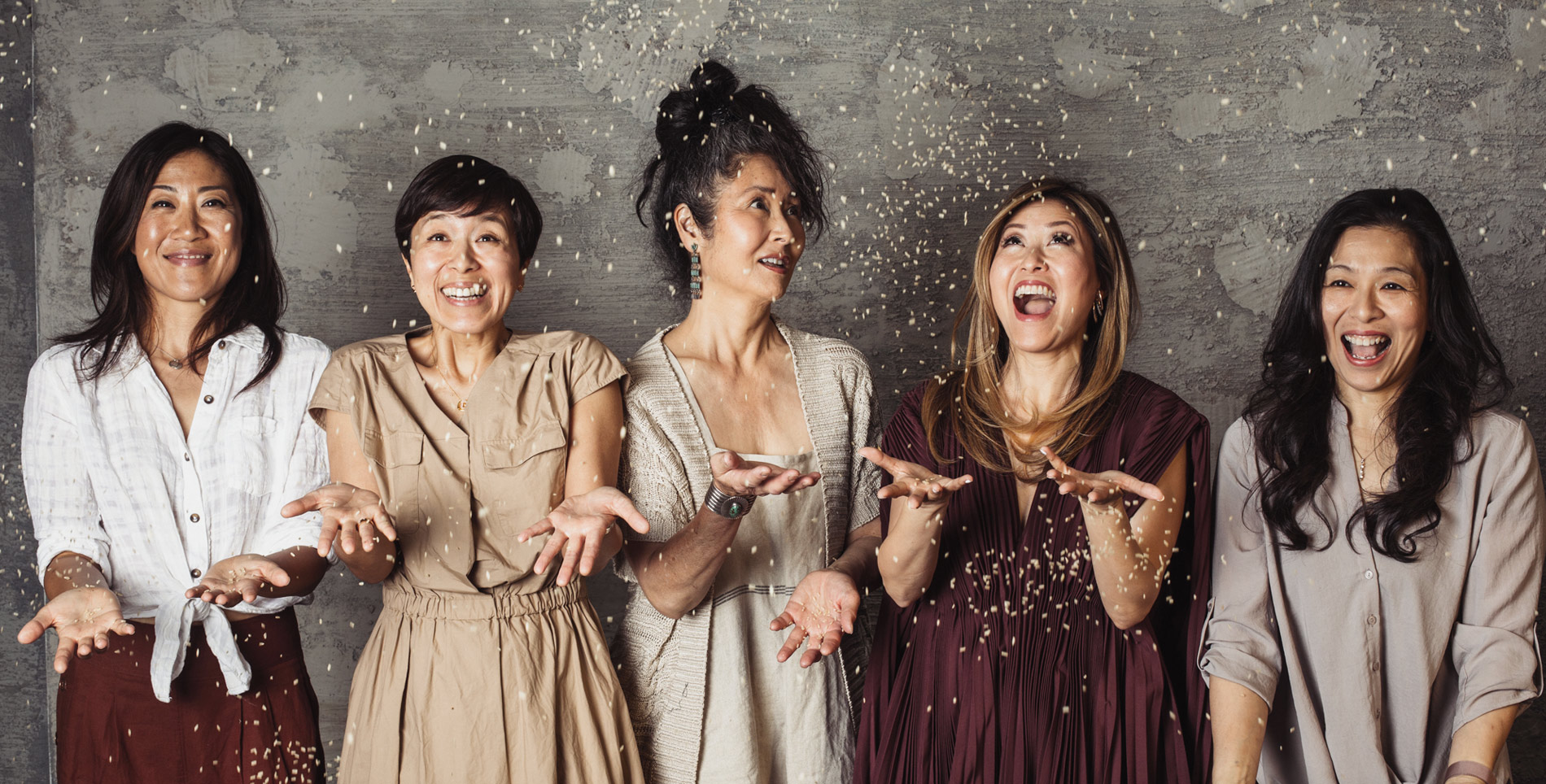
June 18, 2019
Why Rice?
Five women reflect on what rice means to them personally, culturally and economically as food industry leaders.
Interview by Nicole Ziza Bauer
Photography by Katrina Frederick
“While rice is very familiar to many people, I now know from experience to never to call it simple.” Ann Soh Woods, founder of Kikori Whiskey, neatly gets to the point. What we can easily pass over as common is, more often, its own form of perfection.
As one of the most versatile crops on the planet, rice is grown in the wetland deltas of Southeast Asia to the coastal shores of South Carolina. It’s been cultivated in the desert of eastern Saudi Arabia and within the zero-gravity confines of the Tiangong space station. According to conservative historical estimates, rice has been feeding civilizations since at least 2500 B.C. A study of rice is a study of life itself. Or, as Carol Kwan, co-founder of Mama Musubi calls it, “a beautiful blank canvas to work with.”
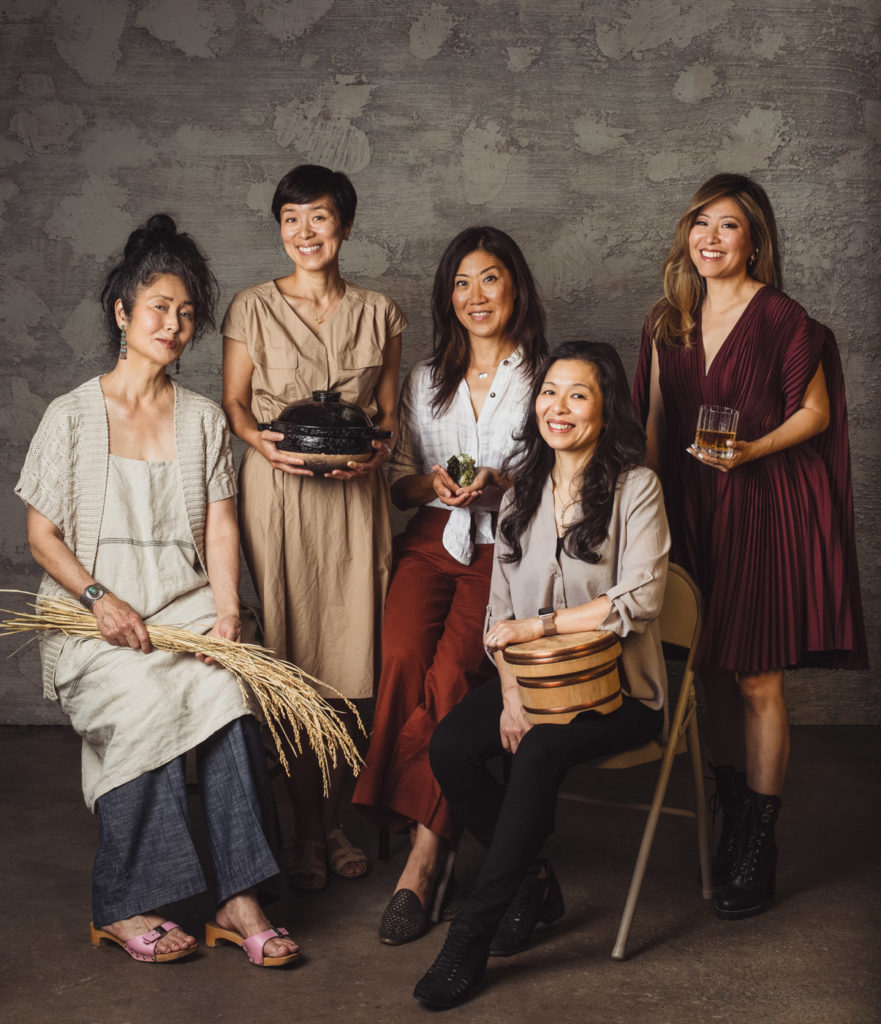
It’s in that spirit of artistry that we turn to five entrepreneurs who have made rice—whether growing it, cooking it, or distilling it—their craft. Where others see a plain grain, they’ve seen, and sown, potential. May a bowl of it never seem so ordinary again.
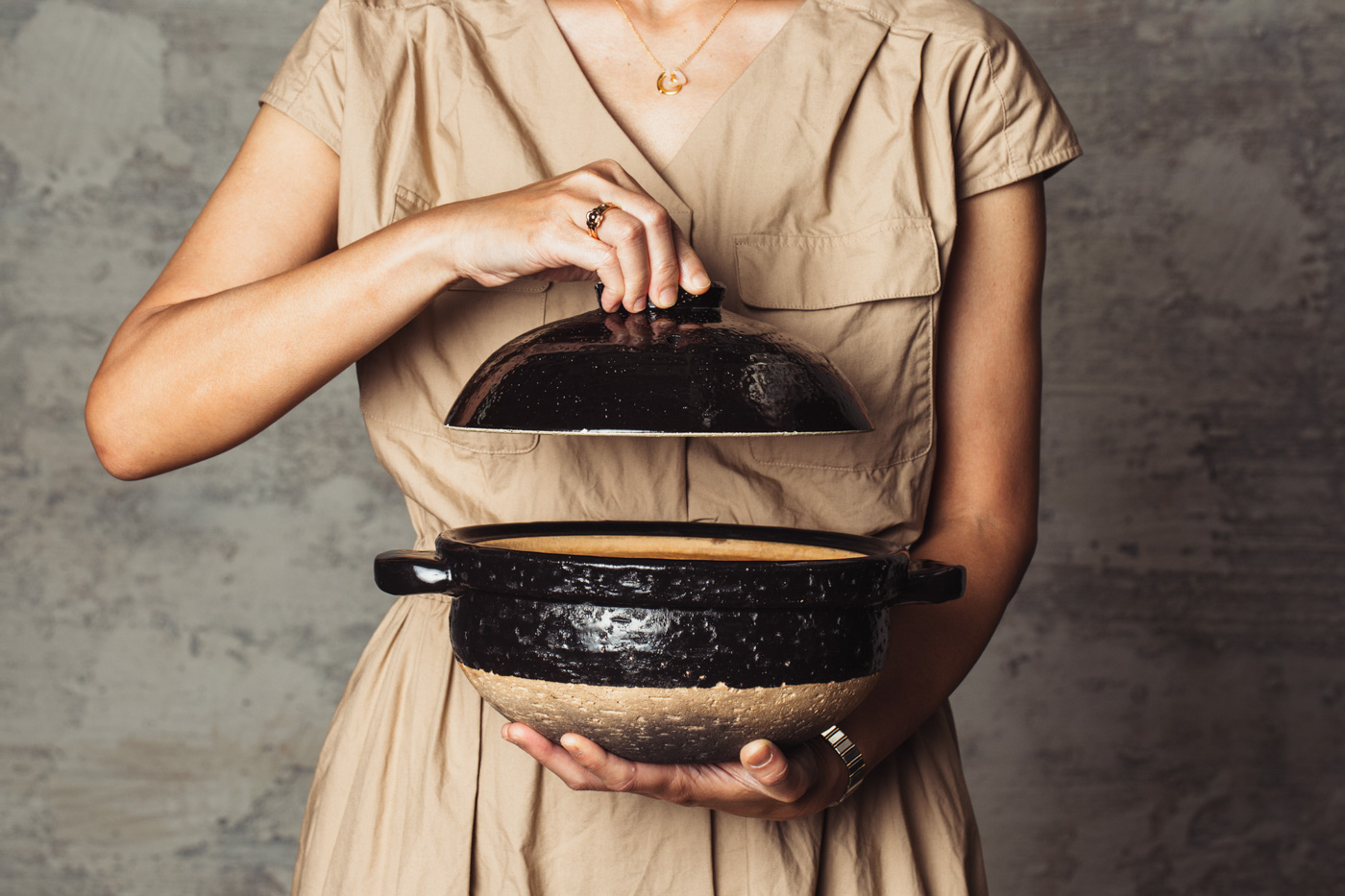
Naoko Takei Moore
Author of Donabe: Classic and Modern Japanese Clay Pot Cooking, and Owner/Founder of TOIRO
Rice is a central part of what you do. How does it inspire you?
The rice made in donabe is simply so special and it originally inspired me to start importing donabe to the U.S. (and here I am now)!
I cook rice in donabe every single day, often twice a day for lunch and dinner, and every time is exciting—the aroma as it’s being cooked, the moment I open the lid, and when finally, it’s served. [It] makes me want to spread more and more of the amazing rice cooked in this traditional Japanese vessel to the people around the world.
Rice inspires me to spread wonderful Japanese food culture to the people in the U.S. and create community around it. Just recently, we threw a Spring Festival at our shop and offered different flavors of onigiri (rice balls) along with other small Japanese dishes to our guests. We cooked countless batches of rice with donabe to make about five hundred rice balls. Hundreds of people came to the event and they were all so enthusiastic about learning more about donabe and Japanese cooking through rice balls. The event was filled with love and made me so grateful that so many people loved to be part of this community and support our mission.
What was the impetus for starting your business?
It was kind of natural. I love cooking, eating and sharing my joy with people. I also felt it’s my mission to share the wonderful food culture of my country to people outside of Japan.
How do you feel the freedom to play and be creative within the confines of something (seemingly) as simple as rice?
Rice can be enjoyed in so many different ways, such as mixing with ingredients or toppings, pouring broth or tea for ochazuke or zosui, or adding rice vinegar to make sushi rice.
What do you hope to see more of in your industry in the next year? How are you contributing to that vision?
Sustainability. We offer products which are to be enjoyed for many years and help make your life happier and better, as well as stories and education related to the products and our strong belief in home cooking.
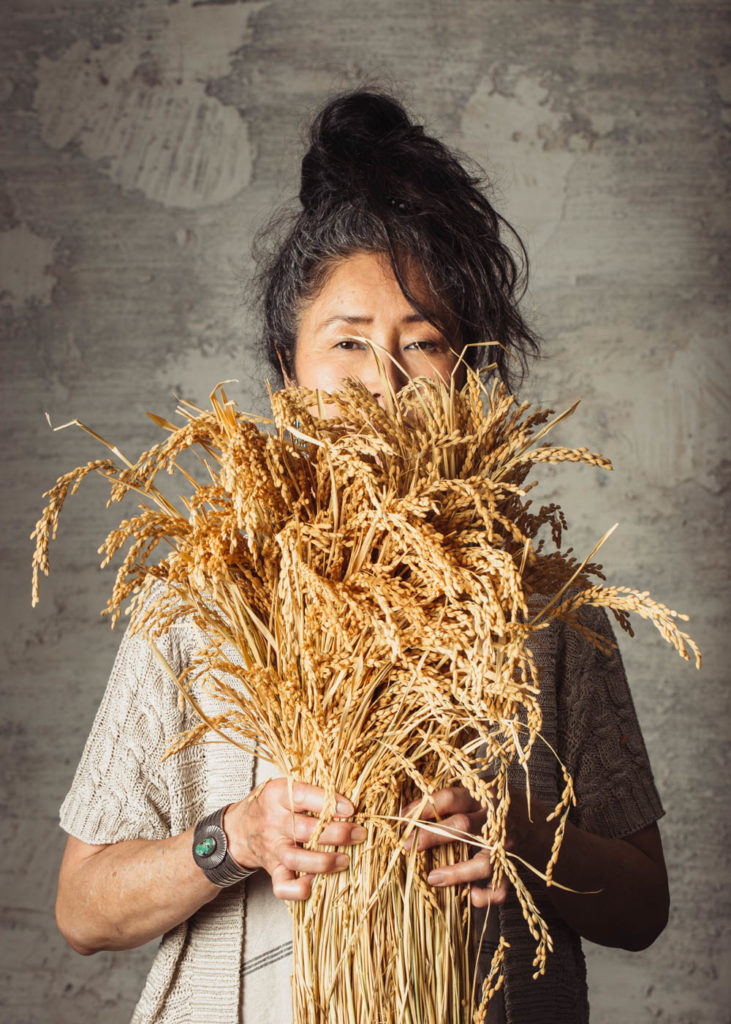
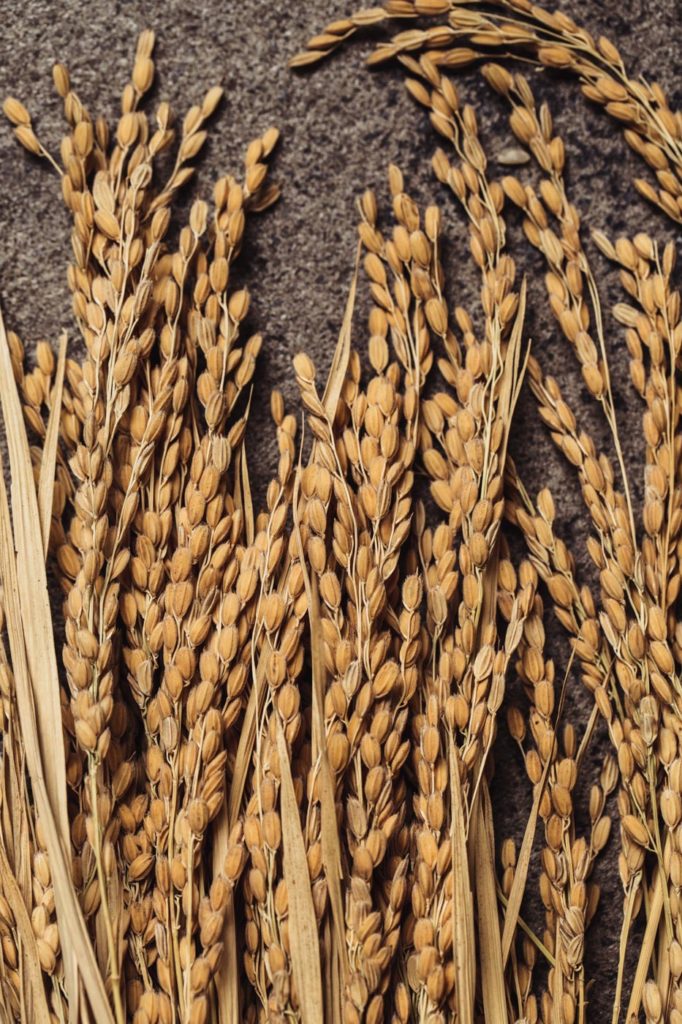
Robin Koda
Co-owner of Koda Farms
What is your first memory of rice?
Playing in the rice hull huts and having an allergic reaction. Asthma! Hives!
What role did rice play in your life growing up?
[It was] central to everything, from our plate to our pocketbook. Not dissimilar to many immigrants’ entrepreneurial experiences, the residence I grew up in literally faces the business. Our main rice dryer in our front yard, the warehouses, the rice fields, were all our expansive playground. Walking the processing and packaging lines, as well as wandering the summer rice field levees, formed our experience of the physical world. Nothing was off limits as our parents felt we should know exactly what our livelihood and its historical roots were based upon.
How does the medium through which the public interacts with your product influence your business? Do you need to think about that?
This has been an ongoing pickle for my brother and I. Historically, we were innovators in the California rice industry, and with a superior product and little competition, we literally couldn’t farm enough rice to fill the retail/consumer demand.
Through the years, as our distributors introduced their own “private label” rice brands, they had more incentive to push their own products. Today, we’re still dependent on these same distribution channels. Their private labels (i.e. Nishiki) and imported products also crowd the retail shelf. In 2004 we proudly introduced our first certified organic versions of our concurrent traditionally farmed (non-organic), but were naively bowled over when none of our customary distributors expressed an iota of interest in it.
To this day, even as we continue to transition more acreage to organic status, it’s been a struggle. My thought was interfacing with the public directly in an effort to educate could be beneficial. To that effect, I still participate in the Santa Monica Wednesday farmers market and the Hollywood Sunday market on a once monthly basis. Similarly, I feel that the public often looks to food professionals for validation of products.
How does rice inspire you today?
Rice and its intimate role in our predecessor’s experience as newcomers to this country are forever intertwined. It’s a complicated mixture of pride, obligation and familial duty.
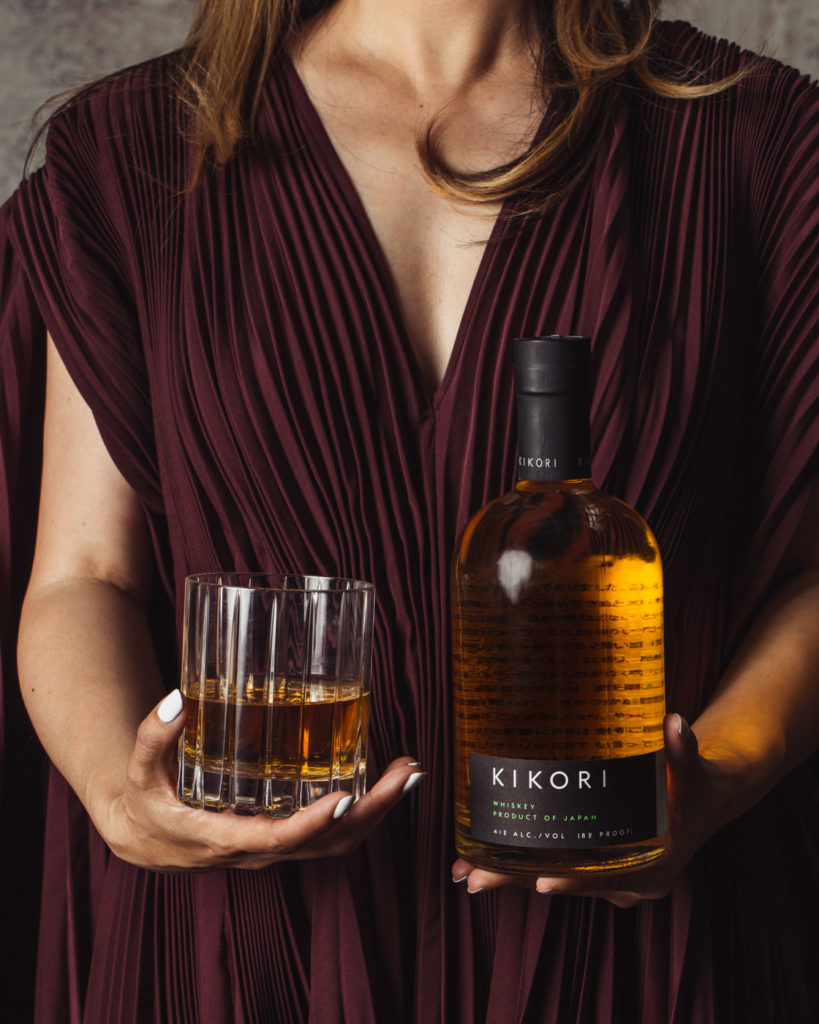
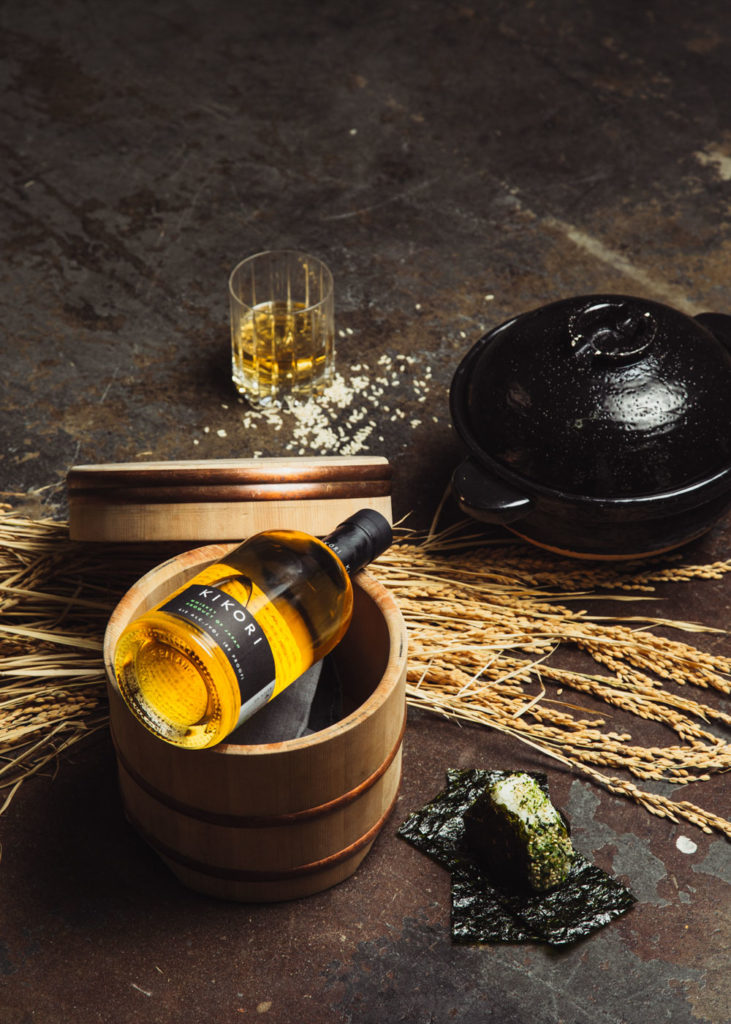
Ann Soh Woods
Founder of Kikori Whiskey
What is your first memory of rice?
A rice cooker was standard equipment in our home. It was a fixture on our kitchen counter, so it seemed pretty normal to me. Except, of course, when I had friends over who were not Asian. They thought my mom was making ice cream. Boy, were they disappointed.
Today, the rice cooker is a mainstay in my own home and my boys know how to make a perfect pot of rice.
What role did rice play in your life growing up?
Rice was our staple; we ate it with breakfast, lunch and dinner. Rice was our comfort food when we were sick. My sisters and I used it for glue in school projects, little satchels of rice were used as paper weights on windy days, and my mom would even throw some dry rice in a sock, heat it up, and use it as a heating pad.
What was the impetus for starting your business?
I had this idea of creating a spirit that reflected my Asian heritage, was accessible to all palates, and fit my lifestyle. Rice has a flavor and profile that is very familiar to me, so it was easy to understand how rice could be used in different ways.
I served as my own guinea pig for Kikori Whiskey. I thought about all the types of cocktail occasions I enjoyed and sought to create a product with the versatility to be enjoyed neat, on the rocks, or in all types of cocktails. I have sampled many different spirits and cocktails over the past few years in the development of Kikori.
Was there anyone who came before you (or even after you) in your industry who motivated you in a particular way?
I got motivated pretty damn quickly. I was motivated every time I raised eyebrows, was ignored in meetings, was asked where my husband was, requested if I could bring the owner to a meeting (the owner is me!), or was bluntly asked what a woman could know about whiskies.
I really wasn’t aware that a female founder in the spirits industry was such a rare thing, and frankly, I did not care. Despite setbacks and infuriating moments, I found it all to be incredibly motivating.
What does preservation look like within your field and, simultaneously, how do you look for ways to innovate? Is one more important than the other?
In the spirits industry, it seems as if it’s important to have lots of new expressions to stay relevant. When I started, I had one rice whiskey, in one size, one flavor profile, one age statement. We just released our second, called Kikori TEN. For me, it was more of a curiosity and excitement to try a new idea, which was bottling the whiskey from a single sherry cask that had been aged for ten years.
The innovation lies in being able to create something new (or, in this case, something ten years old) while maintaining the integrity of the brand. Because new for new’s sake isn’t innovative; being able to preserve the core of what you’ve created while introducing a new product is. I’m really proud to say I think we’ve done that with Kikori TEN; it was just released and there are just 312 bottles, each numbered, produced.
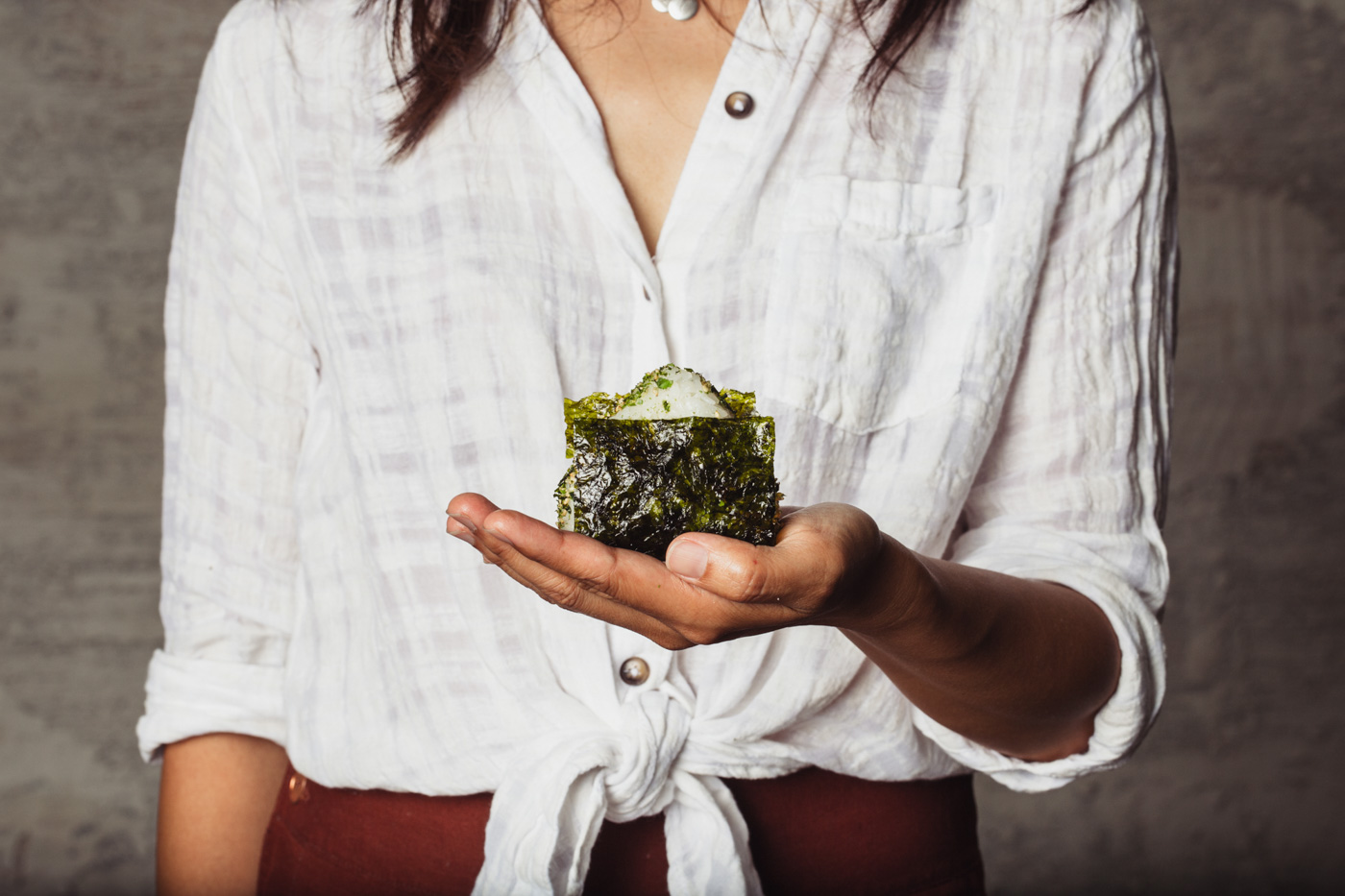
Carol Kwan
Co-Founder of Mama Musubi
What role did rice play in your life growing up?
Rice is a daily routine and it was served at every meal. I find myself eating each bowl with intention now. It gives me gratitude, to appreciate the grain harvested by these farmers.
As a central part of what you do, how does rice inspire you?
This simple grain is the main ingredient for our brand and company. The grain of rice inspires me continuously because it brings so much joy to the kids and people who eat our omusubi weekly. I am always learning and making sure we are sourcing the best of what is available to us.
How did you get started?
The main reason we started this company was when I moved back from the Bay Area and saw that L.A. was lacking good quality ingredients in the quick, casual food scene, and was ready for something that was wholesome, comforting and quick. My son was eight months old then, and options were few when going to grab a quick bite, so when the idea came up, we did R&D to come up with the recipes.
How do you factor in public interaction with your business?
We work hard to build a community at the farmers markets we operate at. I am constantly so grateful for how our customers give us their support and business in our community.
In return, it is my responsibility to give them the consistency and experience. This year we have been asked to do pop-ups and wholesale, as we are humbled to be thought of, we are considering this space and doing R&D to come up with a few menu items for catering and grab-and-go. Nevertheless, the opportunity to grow and scale is really exciting for us.
What are some key things you consider as you look to evolve as a business?
In our industry, consistency is key. But not only is it important to have a product people love, we constantly think about sustainability and reevaluating if the current business model serves a purpose for us anymore.
As we look into the bigger picture, setting up the supply chain and operations is important in our business growth. As labor steeply increases in this industry of razor thin margins, we have to keep an open mindset about technology; options have been presented to us, but we want to preserve the integrity of the omusubi while making sure we take care of our employees’ well-being and growth.
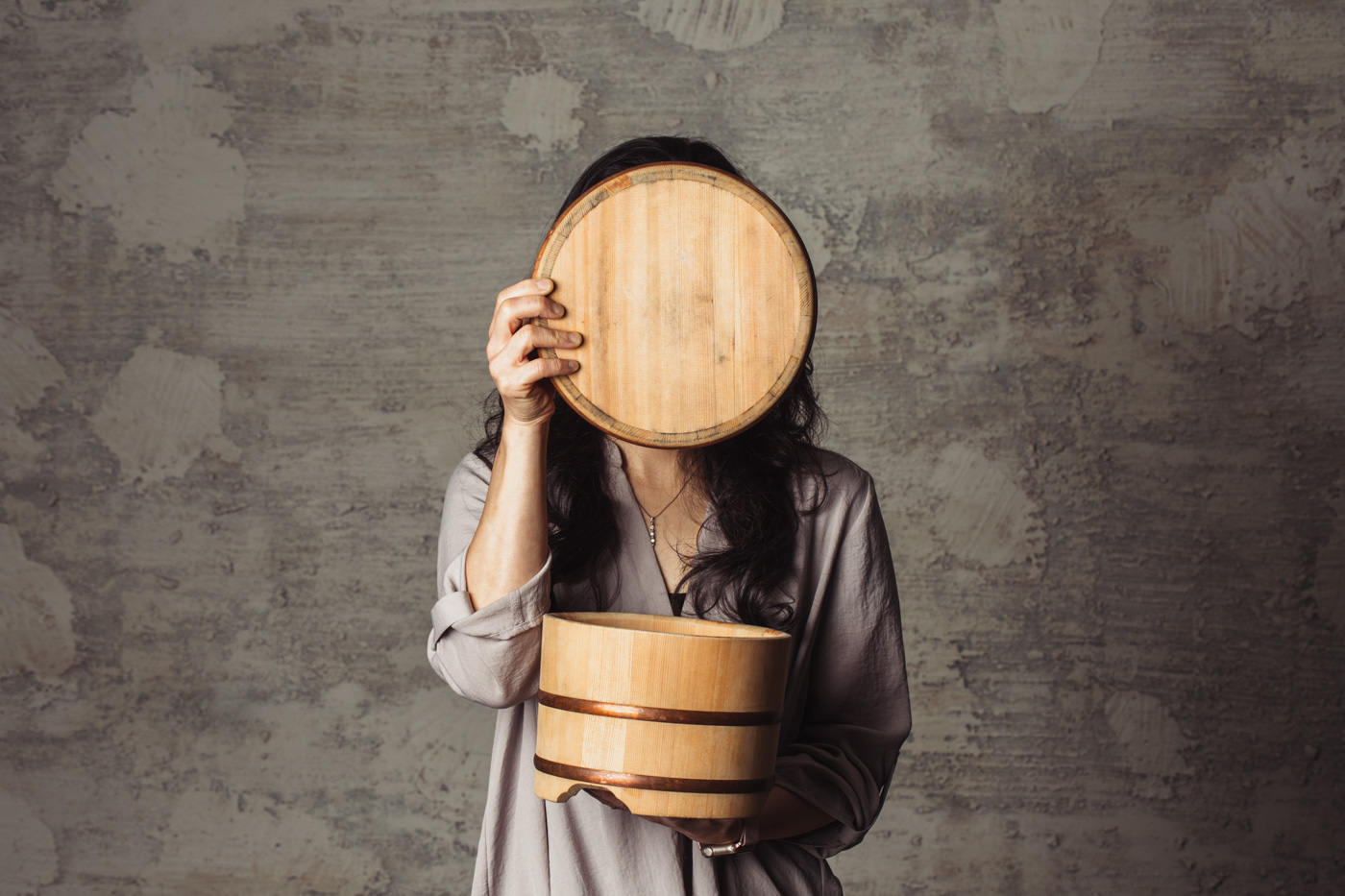
Niki Nakayama
Chef and Owner of n/naka
What is your first memory of rice?
When my grandmother made me a bowl of okayu (rice porridge) and I remember her calling out to me to tell me it was ready. I was just around one or two years old, and I remember being in diapers and being really happy about that fact, since I wanted to surprise her.
I tiptoed outside to do that and she said “Oh! Why are you naked?” so I accomplished my goal. Then she took a spoonful of okayu and put in my mouth and I just remember feeling so happy.
What role did rice play in your life growing up?
I’ve always been the person who wanted rice as the main course and ate everything around it in smaller bits so I could eat more rice. I never understood how people ate more of other items; to me, it’s all about the rice and everything else is a just condiment for it.
How do you balance preservation with innovation? Is one more important than the other?
It’s not a question of whether one is more important than the other, because they’re directly related on some level. When you want to preserve something, you also have to understand how to showcase it in ways to make people understand. You have to adapt and be innovative with it. For example, buri daikon (simmered yellowtail and daikon) might not be understood by the general public because they didn’t eat it growing up. But if you present it in a way that is accessible, then we’re being innovative while preserving what is traditional.
What do you find most inspiring about rice?
Once you’ve experienced truly delicious rice, you realize the most important thing to do is to cook it really, really well. You want to achieve a pot of rice in which every grain has that perfect, shiny look and while it’s soft, you will still be able to feel each individual grain in your mouth.
Rice inspires me to learn constantly because it’s so complex; it’s equally the most technical and the most intuitive thing at the same time. For example, I feel the dry grains between my fingers and depending on the type of rice or how long it’s been stored, it may require more water. I need to figure out how much it will absorb and therefore how much water to add. But then you also weigh the rice and measure the water; that aspect is very technical.
Sometimes it’s a science, and other days you achieve a better pot of rice when you cook it more intuitively. It is a constant mystery.

Our comments section is for members only.
Join today to gain exclusive access.